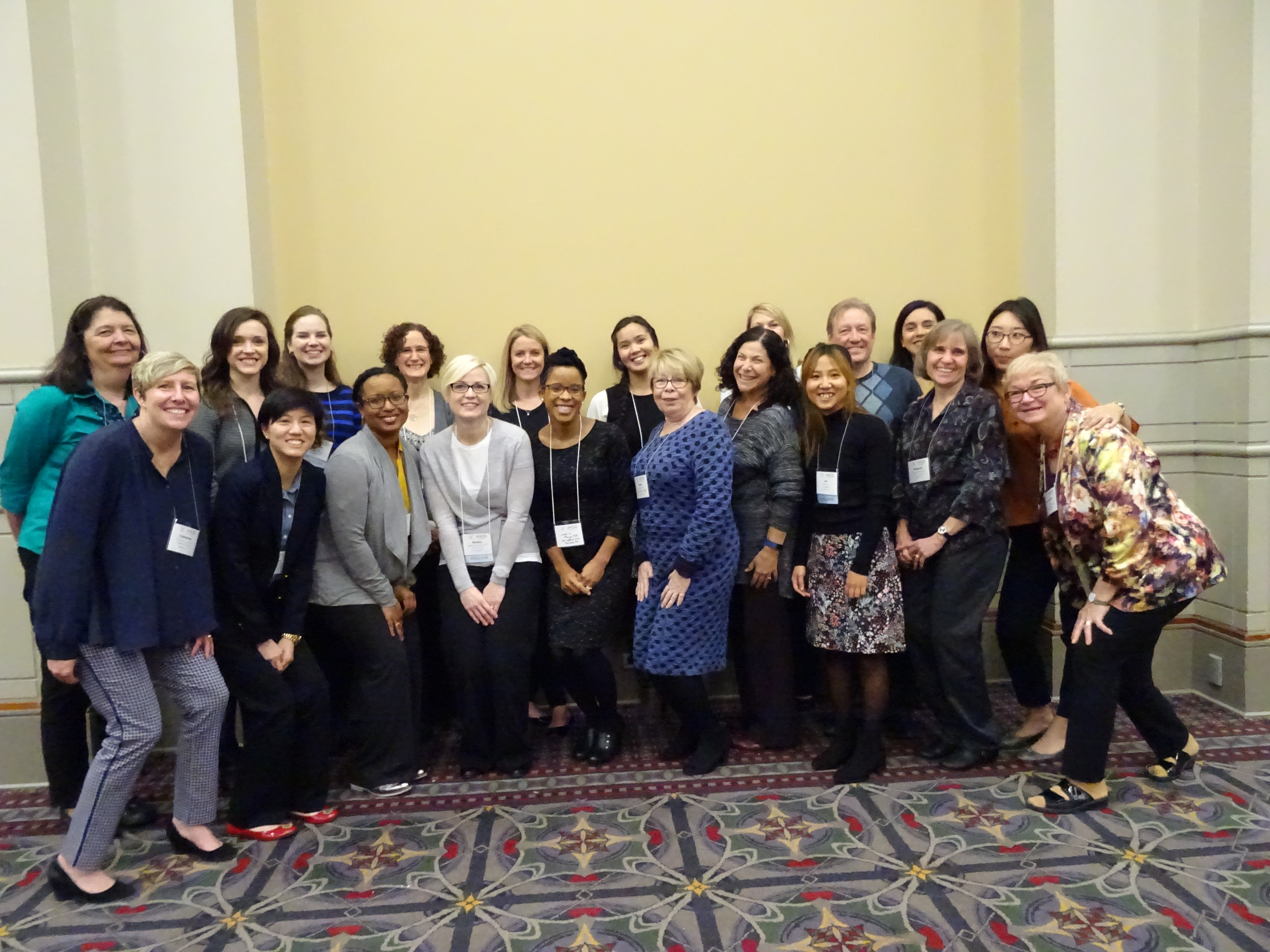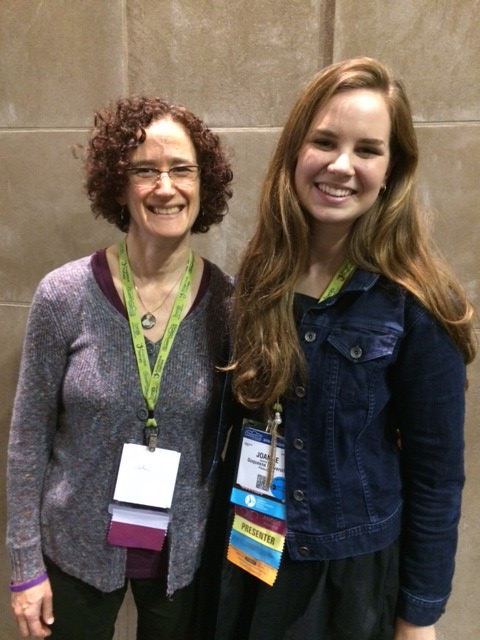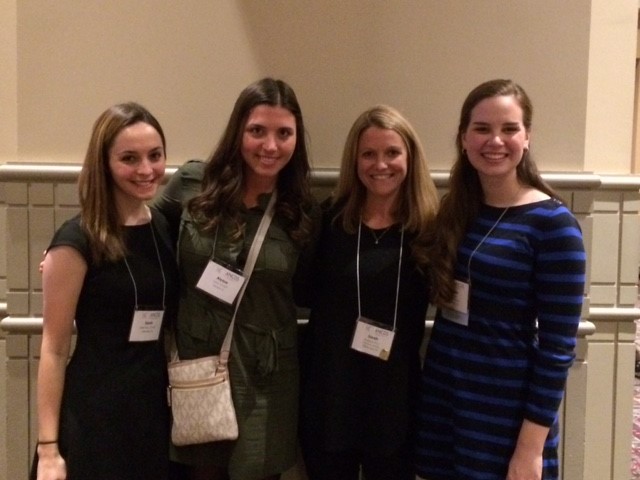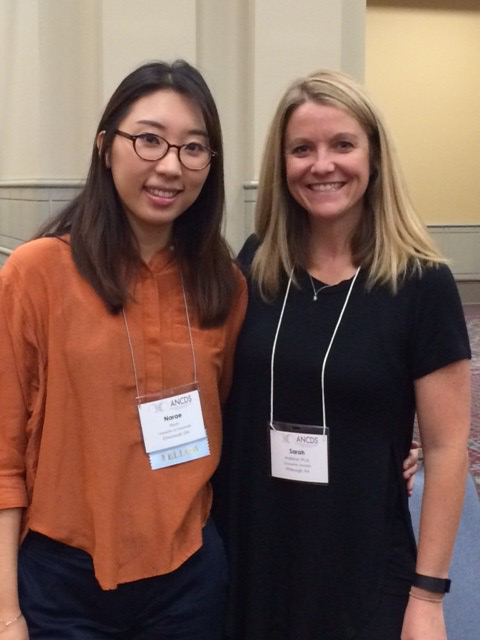Highlights from the 2016 Annual Scientific Meeting
What an amazing time to be a part of an association that aims to enhance the communicative lives of individuals who are affected by neurologic disorders! With this mission in mind and in the midst of an ever changing landscape of
science and technology, we as professionals have the opportunity to make a difference in the lives of people with various communication disorders. How do we do this? By seeking to provide the highest quality of care through evidence-based clinical practice and keeping in step with and participating in research related to our mission and our respective areas of expertise. The ANCDS Annual Scientific meeting provides a platform to share knowledge and skills as we continue to learn and grow as a profession. Our goal for this year’s Scientific Meeting, held on November 16th, in Philadelphia, PA, was to have experts present on the theme of Genetics, Ethics, and Management of Cognitive Communicative Disorders in Neurodegenerative Diseases.
Our invited speakers consisted of experts in neurology, speech-language pathology, and law. The morning began with clinical and theoretical considerations from the perspective of two local neurologists. Murray Grossman, MD, a Professor of Neurology at the University of Pennsylvania and a specialist in frontotemporal dementia, presented on Neural Basis for Language Disorders in Primary Progressive Aphasia (PPA). He focused on explaining receptive and expressive language features, neuroimaging findings, and a multimodal strategy for diagnosis related to the semantic, nonfluent/agrammatic, and behavioral variants of PPA. Next, David Irwin, MD, Assistant Professor of Neurology also at the University of Pennsylvania, spoke about the Influence of Genetic Variants on Underlying Neuropathology in Neurodegenerative Disorders. He explained the complexities of clinical and genetic pathological associations in PPA, common genetic variants, rare pathogenic variants of PPA related neuropathology, and considerations for emerging disease modifying therapies.
The afternoon consisted of a symposium on treatment of PPA. The first of two speakers for this symposium was Maya Henry, PhD, CCC-SLP, Assistant Professor of Communication Sciences and Disorders at the University of Texas, Austin. In her talk, A Staged Treatment Approach for Primary Progressive Aphasia, she explained phases of intervention approaches (restitutive, aided, and environmental) in PPA geared toward maintaining and maximizing communication functions. This was followed by discussion by Jamie Reilly, PhD, CCC-SLP, Associate Professor of Communication Sciences and Disorders at Temple University, entitled Training and Maintaining a Lexicon in the Face of Neurodegeneration: Principles of Item Selection for Formal Semantic Therapy. He discussed the effects of semantic impairments on language processing mechanisms in the semantic variant of PPA and Alzheimer’s disease, the semantic memory model and how item selection is relevant for formal semantic intervention, and results from preliminary tDCS research as a adjuvant to behavioral treatment. The both speakers also presented pertinent cases studies. The Scientific Meeting wrapped up with a presentation by Jennifer Horner, PhD, JD, BC-ANCDS, Associate Dean in the College of Health Sciences and Professions at Ohio University. During her talk, entitled Ethics and Legal Concepts in Neurodegenerative Communication Disorders, she explained background concepts including morality, ethical reasoning, and bioethical principles, defined neuroethics, and provided examples of challenging issues informed by law and ethics with a call to take action.
On behalf of ANCDS, I would like to express our appreciation to the speakers for sharing their expertise and experiences during this year’s meeting. Thank you also to those who provided feedback on the program, which we use each year to evaluate the program as well as to plan for future meetings. The overall average rating for the six areas evaluated was 4.6 out of 5. Attendees were pleased with the overall flow and content of the meeting, including the combination of theoretical and practical components and hearing different perspectives from experts in various disciplines.
I would like to acknowledge the Education and Standards Committee members who worked diligently to put this program together: Greg Turner, PhD, CCC-SLP; JoAnn Silkes, PhD, CCC-SLP; Isabel Hubbard, PhD, CCC-SLP; and Gail Pashek, PhD, CCC-SLP. In addition, thank you to our Local Arrangements Chair, Francine Kohen, MS, CCC-SLP, as well as to our Committee Liaison, Leory Cherny, PhD, CCC-SLP, for their hard work. With the efforts of the Continuing Education Subcommittee—which consisting of JoAnn Silkes, PhD, CCC-SLP; Isabel Hubbard, PhD, CCC-SLP; Leora Cherney, PhD, CCC-SLP; Rachel Johnson, PhD, CCC-SLP; Gregory Turner, PhD, CCC-SLP; Janet Patterson, PhD, CCC-SLP; as well as Sheryle Hazard, CAE, and Cara Anderson from ADS—ANCDS was able to offer continuing education credit as an approved provider for the first time this year.
We hope this meeting promotes ongoing discussions, increased collaboration, and better informed clinical practice and research. We look forward to continuing this journey as professionals to advance the mission and vision of ANCDS. If you did not have a chance to join us during this past Business and Scientific Meeting, plan on joining us next year. We hope to see as many of you as possible in November 2017 in Los Angeles, CA!
 |
 |
 |
 |
Diana Petroi, PhD, CCC-SLP
Chair, Education and Standards Committee
